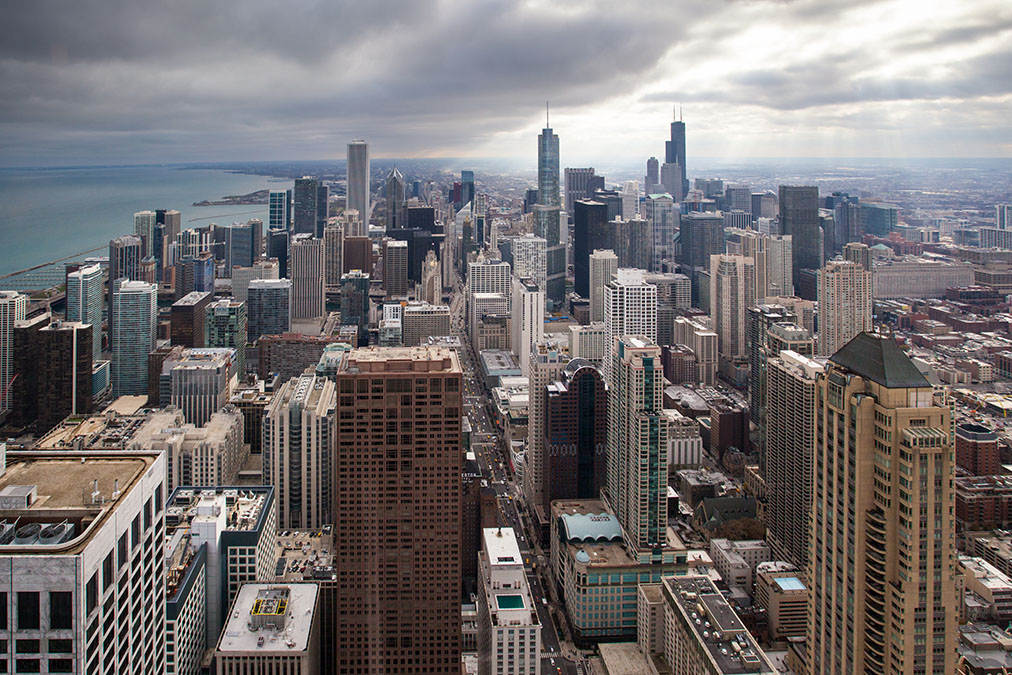Just over a month after finishing in the runner-up spot in the first round of the mayoral election, Cook County Commissioner Brandon Johnson has defeated former Chicago Public Schools CEO Paul Vallas to become the city’s next mayor.
Just over a month after finishing in the runner-up spot in the first round of the mayoral election, Cook County Commissioner Brandon Johnson has defeated former Chicago Public Schools CEO Paul Vallas to become the city's next mayor.
Johnson, who announced his candidacy in late October on the heels of support from the Chicago Teachers Union, received over 20% of the citywide vote in the first-round of the mayoral election, but managed to coalesce support from city progressives as he made his way to victory in the runoff.
Though starting with little name recognition, Johnson rapidly ascended in polling throughout the final weeks leading into the election, and benefited from consolidating much of the city's labor union and progressive support.
After outlasting incumbent Mayor Lori Lightfoot and well-known Congressman Jesús "Chuy" García in the first round of the mayoral election, the latter of whom would go on to endorse him in the runoff, Johnson faced plenty of criticisms of his platform from Vallas and other Democrats in the city, but was able to generate enough support to earn his way to the office on the fifth floor of City Hall.
Johnson got his start as an elected official after narrowly defeating former Cook County Commissioner Richard Boykin in the Democratic primary in 2018, before later running unopposed in the general election that fall.
After being sworn in that December, Johnson established his first battle against Lightfoot less than a year later during the 2019 Chicago Public Schools strike, when he organized alongside CTU and penned a letter in the Chicago Tribune, invoking his own background as a public school teacher.
Johnson's name was first floated as a potential mayoral candidate during the 2019 strike, though he would call the rumors "laughable" in a Politico article chronicling the strike's aftermath.
Local
According to Johnson's website, he began his career as a public school teacher at Jenner Academy in Cabrini-Green before later teaching at Westinghouse College Prep on the West Side.
Johnson has worked as a paid organizer for CTU before, and has also been endorsed by the United Working Families and Service Employees International Union Local 73.
Feeling out of the loop? We'll catch you up on the Chicago news you need to know. Sign up for the weekly Chicago Catch-Up newsletter.
Johnson is an Austin resident, and lives with his wife and three children.
As a candidate, Johnson has positioned himself to the political left of the incumbent mayor, advocating for reduced fares on public transit, canceling the city's contract with ShotSpotter and a real estate transfer tax on the sale of multi-million dollar homes.
According to the County Commissioner's campaign website, Johnson hopes to re-open the city's mental health clinics and increase investment in year-round youth employment to address public safety.
Johnson has faced notable criticism in both the general and runoff election campaigns for signaling past support of "defunding the police", after comments surfaced of the Commissioner calling the slogan "a political goal."
Johnson retorted by saying it was not "his political goal" any longer, and has since clarified that he would not reduce the Chicago Police Department's budget after notably being the only candidate in the first round to not commit to maintaining the department's current budget.
On Johnson's campaign website, he expresses his opposition to raising property taxes while supporting an efficiency review of the city government to identify areas in which spending is higher than deemed necessary.
In addition to advocacy for a real estate transfer tax, Johnson also voices support for taxing profits of Chicago's corporations and instituting TIF reform in an effort to return property tax revenue to the city's schools and parks.
In a policy of "tax fairness", Johnson proposes a "Big Business Head Tax" on large companies who perform 50% or more of their work in Chicago, while also instituting a $98 million jet fuel tax on airlines.
Another noticeable proposal of Johnson's is a Rideshare Living Wage ordinance, aimed to protect gig workers such as rideshare and delivery app drivers.
On transportation, Johnson proposes reduced or eliminated fare for some on the CTA while expanding access and reliability to the system. To help with safety issues, Johnson proposes to have mental health professionals and housing advocates ready to provide resources to those dealing with a crisis while using public transit.
He has also advocated for a wide expansion of the city's bicycle lane and pedestrian walkway system, while showing support for reduced automobile speeds and vehicle access in certain areas.
Johnson's campaign advocates for expanded service in evening hours and greater resources from mental health professionals and housing advocates, though it's unclear what extent of financial allocation would go toward the effort.
More information on Johnson's platform can be found on his campaign website.
Nationally, Johnson's platform attracted endorsements from Sens. Bernie Sanders and Elizabeth Warren, as well as garnering support from Rev. Jesse Jackson, Rep. Jim Clyburn and Martin Luther King III.
Locally, Johnson won endorsements from two fellow first-round candidates, State Rep. Kam Buckner and Congressman Chuy Garcia, in addition to City Council members Andre Vasquez, Michael Rodriguez and Jason Ervin.
For now, Johnson will be tasked with finding a way to translate his campaign platform into concrete action, with numerous members of the City Council opposing him during the runoff election.



